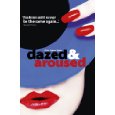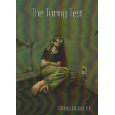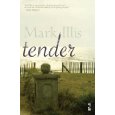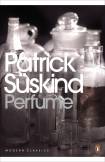 Where to start with The Rehearsal, a book that fizzes over with invention and exuberance; that rummages through haystacks of artifice and returns with surprisingly many needles of truth; that demands attention from its readers, but pays it all back, many times over — that comes laden with praise, every word of it justified?
Where to start with The Rehearsal, a book that fizzes over with invention and exuberance; that rummages through haystacks of artifice and returns with surprisingly many needles of truth; that demands attention from its readers, but pays it all back, many times over — that comes laden with praise, every word of it justified?
We could start with the plot, though that might be something of a red herring. There’s a scandal involving a girl at Abbey Grange school and one of the teachers there. The students at the local drama college decide to use the incident as the basis for a production; but it all gets too close to home for one of the actors when he discovers that he’s embarked on a relationship with the sister of the girl at the heart of the scandal.
That’s all accurate enough, but it tells you precious little of what The Rehearsal is actually about; and practically nothing of what the experience of reading it is really like. From the very first page, we understand that not all is as it seems. We meet a saxophone teacher who says this to the mother of a prospective student:
‘Mrs Henderson. At present your daughter is simply too young. Let me put it this way: a film of soured breast milk clutches at your daughter like a shroud…Do you hear me, with your mouth like a thin scarlet thread and your deflated bosom and your stale mustard blouse?’
She’s not the only character to speak in such a mannered way, and nobody bats an eyelid over it. With hindsight, the clues are there all the way through, but it took me a hundred pages to see what was happening (and I think I only really understood it in the final chapter): we’re witnessing a theatrical performance. But it’s not the same performance as the one the drama students are doing; and it’s no ordinary piece of theatre, because we’re privy to characters’ thoughts as well as their dialogue, just as in any standard prose fiction.
This is part of the unique atmosphere of The Rehearsal: Catton keeps it wonderfully ambiguous whether the scene we’re reading is what actually happened, or a later theatrical reconstruction, or something else. The narrative itself is non-linear (I didn’t bother trying to keep track of the true chronological order of events, but never felt disadvantaged for that); we often hear about key events rather than witnessing them directly; and sometimes we even get conflicting reports of what happened. In short, the novel is a maze of fractured realities.
If all this makes The Rehearsal sound like a cold, unreadable exercise of a book, let me assure you it is not — the pages fly by. Nevertheless, Catton has a very good reason for taking such an unorthodox approach to her novel. But, before I delve into it, I should step back and paint in some details on the generalities I’ve been describing.
The chapters of the novel alternate between two narrative strands, which merge in the last. The first strand concerns some of the girls at Abbey Grange, and three in particular, who all have private lessons with the same saxophone teacher: there’s Isolde, whose sister Victoria is the subject of the scandal; Julia, with whom Isolde eventually becomes friends (and perhaps more); and Bridget, who seems destined to be the eternal ‘other girl’. The second strand is set at the Drama Institute, and focuses especially on nervous young Stanley, who first meets Isolde when she stumbles accidentally upon a rehearsal at the college; and their relationship blossoms haltingly from there.
Catton has a sharp eye for characterisation. It’s presented unusually, to be sure: given the nature of the dialogue, the characterisation is often ‘externalised’, and even exaggerated (as the author reminds us, ‘theatre is a concentrate of life as normal’). But there are many insightful observations of human behaviour to be found here. The saxophone teacher (who often functions as a kind of twisted Greek chorus, saying things that I doubt most people would even want to think) sums Bridget up as ‘always wanting to be somebody else.’ Stanley wants to be an actor because he wants ‘to be seen…if somebody’s watching, you know you’re worth something.’ The most potent weapon that the girls of Abbey Grange have to use against each other is to define each other: who’ll marry first? who’ll cheat? ‘It is the darkest and deadliest of their arts, that each girl might construct or destroy the image of any of the rest.’
And these examples all hint at Catton’s main theme: performing, pretending, rehearsing. She is concerned with the myriad ways we put on performances in life, such as pretending to be what we’re not; telling others what we think they want to hear; putting the interpretation we want on different events; and so on. That’s the reason for all the elaborate games with form and structure: the text itself mirrors the theme — some characters are literally performing roles.
To elaborate on some of the other ways in which the theme manifests itself: we never do learn the truth of what happened between Victoria and her teacher.We don’t know if it truly was assault, or something more innocent; whether he was the predator or she the instigator. It could be either, and because it’s unknown, people can make whatever they want of it. And they do: the girls at Abbey Grange feel don’t feel supportive of Victoria; they feel betrayed by her, because she broke away from the group — at least, that’s what we’re told they feel.
Youth is ‘the rehearsal for everything that comes after,’ says the saxophone teacher. Well, adolescence as presented in this novel is a confusing time of not knowing quite who you are or who you want to be… Yep, that seems a pretty accurate view of it to me. Arguably, of course, adulthood can also be like this; and certainly there are adults, as well as adolescents, in the novel who are putting on a show. The teachers in The Rehearsal don’t receive names (actually, some of the drama teachers do, but they’re mostly referred to by titles), and remain largely anonymous; but two in particular — the saxophone teacher and the Drama Institute’s Head of Movement — seem keen to live vicariously through their students and/or memories. Both find different ways of trying to do that; neither seems, to me, to do all that well out of it.
Performance and artifice are, the novel seems to suggest, everywhere. It would be neat and tidy to view one narrative strand as the heightened, theatrical representation, and the other as ‘real’ reality; but The Rehearsal doesn’t permit such a simplistic reading. The drama teachers seem as outlandish in their own way as the saxophone teacher; and Stanley’s father (who suggested that his son could get rich by taking out a life insurance policy on the child at school most likely to die) feels no more ‘real’ to me than all the interchangeable mothers who are content to let the saxophone teacher insult them and their daughters.
Even the very last scene — which may be when we can trust most completely that what it says on the page is what actually happens in the ‘real world’ of the novel — ends with one character saying to another, ‘I’d be happy if you told me just enough of the facts so I could imagine it. So I could recreate it for myself. So I could imagine that I was really there.’ After reading The Rehearsal, one might well come to the conclusion that this is an impossible dream.
Have I nothing bad to say about this book? Not really — the features that would usually be considered flaws become strengths in context. So it’s undiluted praise for The Rehearsal from me — and I don’t give that out lightly. Eleanor Catton was 22 when she wrote her début novel, and the craft and artistry it shows are superlative. I think she will be one of the best and most significant writers of her generation.
Like this:
Like Loading...
 Where to start with The Rehearsal, a book that fizzes over with invention and exuberance; that rummages through haystacks of artifice and returns with surprisingly many needles of truth; that demands attention from its readers, but pays it all back, many times over — that comes laden with praise, every word of it justified?
Where to start with The Rehearsal, a book that fizzes over with invention and exuberance; that rummages through haystacks of artifice and returns with surprisingly many needles of truth; that demands attention from its readers, but pays it all back, many times over — that comes laden with praise, every word of it justified? The exploits of a model in a glossy, superficial world of sex ‘n’ drugs ‘n’ photo-shoots do not, to be honest, sound like immediately appealing reading — which is rather the point. This is the world in which
The exploits of a model in a glossy, superficial world of sex ‘n’ drugs ‘n’ photo-shoots do not, to be honest, sound like immediately appealing reading — which is rather the point. This is the world in which  Earlier this month, the winner was announced of the
Earlier this month, the winner was announced of the  Tender is not strictly a novel, nor is it a conventional short story collection; it’s not even a typical mosaic novel, story cycle, or whatever name you care to give to a collection of linked stories. It is, however, a series of episodes in the lives of the Dax family, beginning in 1974 (when the parents meet), and spanning a total of thirty years. The title appears in the text, not in an emotional context, but in the context of a lamb stew which Ali Dax serves up — but her husband and son don’t seem to appreciate the tenderness of the meat, which had to be cooked slowly for it to attain that texture. All that care and effort, for what? This reflects what is perhaps the main theme of Tender — feeling discontented with life, looking back and wondering what happened, where it went.
Tender is not strictly a novel, nor is it a conventional short story collection; it’s not even a typical mosaic novel, story cycle, or whatever name you care to give to a collection of linked stories. It is, however, a series of episodes in the lives of the Dax family, beginning in 1974 (when the parents meet), and spanning a total of thirty years. The title appears in the text, not in an emotional context, but in the context of a lamb stew which Ali Dax serves up — but her husband and son don’t seem to appreciate the tenderness of the meat, which had to be cooked slowly for it to attain that texture. All that care and effort, for what? This reflects what is perhaps the main theme of Tender — feeling discontented with life, looking back and wondering what happened, where it went. Perfume is one of those books I had heard of by reputation, but didn’t actually know anything about. And now I’ve read it… well, it’s not what I was expecting, but it’s good. I liked it, but saying so feels a little uncomfortable — as well it ought!
Perfume is one of those books I had heard of by reputation, but didn’t actually know anything about. And now I’ve read it… well, it’s not what I was expecting, but it’s good. I liked it, but saying so feels a little uncomfortable — as well it ought! My first Ishiguro book, Nocturnes is a cycle of ‘five stories of music and nightfall’ (says the front cover). I spent most of the book feeling curiously unsatisfied; and I still feel that way now I’ve finished it. As far as I can see, the stories are linked so tenuously as to be hardly worth considering as a ‘cycle’. If Ishiguro has a wider point to make with them, I’m not sure what that point is. And if the tales are meant to be entertaining, insightful, or moving… well, bar a couple of moments, I didn’t really find them so.
My first Ishiguro book, Nocturnes is a cycle of ‘five stories of music and nightfall’ (says the front cover). I spent most of the book feeling curiously unsatisfied; and I still feel that way now I’ve finished it. As far as I can see, the stories are linked so tenuously as to be hardly worth considering as a ‘cycle’. If Ishiguro has a wider point to make with them, I’m not sure what that point is. And if the tales are meant to be entertaining, insightful, or moving… well, bar a couple of moments, I didn’t really find them so. Solo is the story of Ulrich, a blind, hundred-year-old Bulgarian man who has little to do with his days but reminisce and daydream. He does both during the course of the novel.
Solo is the story of Ulrich, a blind, hundred-year-old Bulgarian man who has little to do with his days but reminisce and daydream. He does both during the course of the novel.
Recent Comments